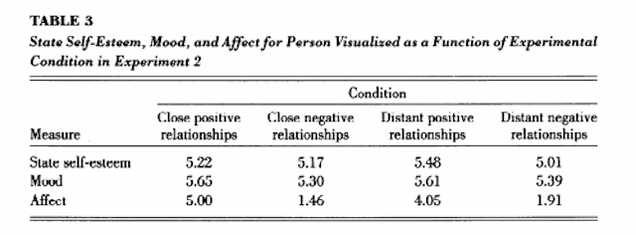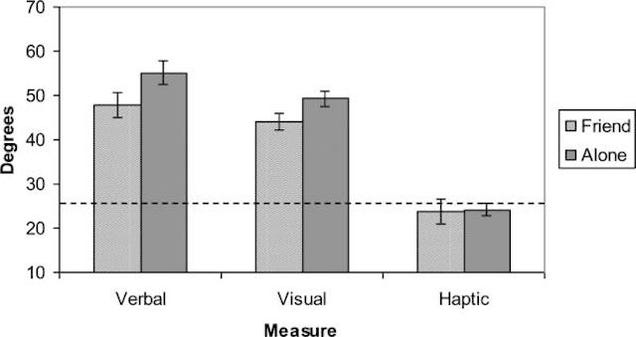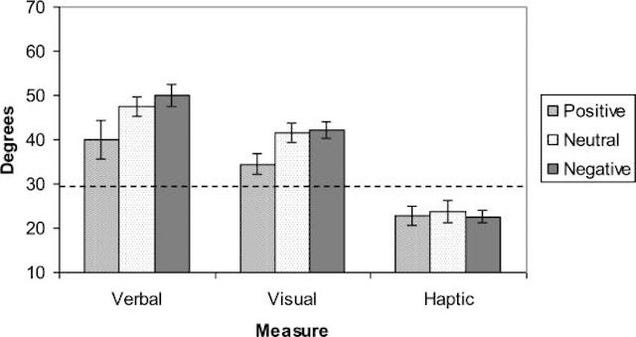Friendship Is More Powerful Than We Ever Imagined
Friendship is powerful — everything from pop culture tells us so. But how powerful is it? Turns out that friendship has all sorts of properties, that include making you healthier, increasing your self-awareness and helping you accomplish way more. Here are all the ways science proves that friendship really is magic.
Genetics Can Predict Slightly Better Than Chance If Two People Are Friends
It's not that there's a "friendship gene," it's that there is some correlation between genetics and friendship. The study looked at 1,367 friendship pairs and 466,608 genetic marker and variants of those genetic markers. The study made sure to look at people who were not related, but the subjects were almost all of European descent.
The researchers concluded:
Pairs of friends are, on average, as genetically similar to one another as fourth cousins, which seems noteworthy because this estimate is above and beyond mean ancestry and background relatedness. Acquiring friends who resemble oneself genotypically from among a group of strangers may reflect a number of processes, including the selection of particular friends or particular environments. Whatever its cause, however, the subtle process of genetic sorting in human social relationships might have an important effect on a number of other biological and social processes, from the spread of germs to the spread of information.
And yet, it wasn't the same across all markers. On the one hand, friends were more likely than others to share genetic markers related to smell whereas they were less likely to share genetic markers related to immune system.
The smell thing, the researchers say, could be related to the role smell plays in kin recognition and that "it is possible that individuals who smell things in the same way are drawn to similar environments where they interact with and befriend one another." As for the immune system results:
In the case of friends, there may also be advantages to complementarity rather than synergy when it comes to immune system function because surrounding oneself with others who are dissimilar to oneself in this regard may be an adaptive strategy. If one is already relatively resistant to a particular pathogen, it would be best to have friends who were resistant to different pathogens, thus mitigating the interpersonal spread of both. Genes affecting the immune system do not necessarily benefit from interpersonal ties to genotypically similar individuals.
What the study did provide the researchers was the ability to predict if unrelated people were friends. Said study author James Fowler:
We can do better than chance at predicting if two people are going to be friends if all we have is their genetic data.
So not a slam dunk, by any means, but better than a coin flip.
It Helps You Live Longer and Healthier Lives
This has been exhaustively researched and the conclusion is pretty universal: friendships help improve life expectancy and health. A 2010 meta-analysis of 148 studies into friendship and mortality indicated a "50% increased likelihood of survival for participants with stronger social relationships." This number stayed consistent across age, sex, initial health status, cause of death, and follow-up period.
As for why friendships have good effects, the authors of the study describe the two competing theories, the stress buffering model and and the main effects model, this way:
There are two general theoretical models that propose processes through which social relationships may influence health: the stress buffering and main effects models. The buffering hypothesis suggests that social relationships may provide resources (informational, emotional, or tangible) that promote adaptive behavioral or neuroendocrine responses to acute or chronic stressors (e.g., illness, life events, life transitions). The aid from social relationships thereby moderates or buffers the deleterious influence of stressors on health.From this perspective, the term social support is used to refer to the real or perceived availability of social resources. The main effects model proposes that social relationships may be associated with protective health effects through more direct means, such as cognitive, emotional, behavioral, and biological influences that are not explicitly intended as help or support. For instance, social relationships may directly encourage or indirectly model healthy behaviors; thus, being part of a social network is typically associated with conformity to social norms relevant to health and self-care. In addition, being part of a social network gives individuals meaningful roles that provide self-esteem and purpose to life.
So either friendship lessens the impact of negative effects or promotes healthier behaviors. But whatever the cause, the correlation numbers are very strong. And the effect got stronger the more types of relationships there were. In the studies looking beyond one factor — such as marital status — the likelihood of survival increased to 91%. Things as simple as whether or not a person lived alone were the least predictive, since it wasn't a perfect proxy for having a strong relationship.
Because many of the studies that this meta-analysis included only used a single item for evaluation, the researchers caution that their 50% number may actually be low and the true number may be closer to the 91% result from the more complex studies. That's how good friends are for your life expectancy. Have good, close friendships — and live longer.
It Makes You More Willing to Learn About Your Flaws
Thinking of a close relationship can soften blows and make you more open to hearing about things you've done badly. A 2005 study had 110 participants take a so-called "intelligence task." The participants were put in three groups: one group was asked to think of the person they had the closest relationship to, one was asked to think of the person they had the worst relationship with, and the third to think of a neutral relationship. The first two groups spent three minutes answering questions about those relationships, to cement them even more in their mind.
After that, each participant was told that they had done poorly on the intelligence test, in order to make them believe the test had found a liability. They were then asked to rank, on a scale of 1 = not at all to 9 = very much, "How interested are you in reading detailed liability-focusedinformation?"; "To what extent would you be willing to go out of your way to obtain detailed liability-focused information?"; 'To what extent would you like us to recommend further sources that would provide you with even more detailed liability-focused information?"
The participants also rated test difficulty 1 to 9 (easy to hard) and "how pleasant or unpleasant do you expect the detailed information about yourself to be?" (1 to 9, very unpleasant to unpleasant).
The people thinking about close relationships were more interested in learning more about their liabilities than the other two groups combined, while the neutral and negative groups weren't too different in terms of how interested they were. So close relationships made it easier to seek out beneficial, but unpleasant, information about yourself.
The researchers essentially repeated the experiment, this time having the participants answer questions that assessed their self-esteem and their mood, while an observer rated the affect (how warmly the participants acted). The results were that mood and self-esteem didn't differ that much, but affect did.
The researchers concluded that people thinking of positive relationships were warmer and more accepting, and hypothesized that it acted as a "buffer," as in the stress buffering theory offered for the health benefits of friendship:
Assuming that close positive relationships convey a sense of warmth and acceptance, we hypothesized that thinking about close positive relationships would increase receptivity to accurate but unpleasant information about performance weaknesses in the face of immediate prior failure. Close positive relationships buffer the self to the point where accurate and potentially beneficial information about one's liabilities will be considered worth soliciting despite the clear and present threat to the self.The evidence was consistent with the hypothesis. In Experiment 1, participants who brought to mind a close positive (as opposed to close negative or neutral) relationship indicated stronger interest in additional information about a newly discoveredweakness. In Experiment 2, participants who brought to mind a close positive (as opposed to close negative, distant positive, or distant negative) relationship expressed the strongest interest in information about a newly discovered weakness. Buffered by thoughts of a close positive relationship, participants overcame a considerable amount of self-threat in their quest for potentially useful information.
Think about having a friend give you constructive criticism. And now think of an enemy doing it. It's not surprising that we're more receptive in the first case. But this study indicates that just being in the friendship headspace will make it easier for you to hear bad things about yourself.
So Long As You're Not the Most Productive Worker, Having Friends At Work Makes You More Productive
A 2010 study looked at the productivity of workers in harvesting fruit, and found that the presence of friends did affect ability:
The evidence points to social incentives affecting workers' behaviour, despite there being no externalities arising from either the production technology or compensation schemes in place. Social incentives are found to depend on the ability of a worker relative to that of her friends present on the same field-day. More precisely, relative to working only with non-friends, the average worker is 10% more productive if at least one of her abler friends is present, and is 10% less productive if she is the ablest among her friends.
This was even though being more productive led to higher pay:
However, our findings are consistent with the hypothesis that workers are averse to inequality in productivity with their friends. This might be relevant if, for instance, fast workers do not want to embarrass their slower friends by leaving them behind, or if slow workers are ashamed of their low productivity.An alternative hypothesis to explain our findings is that workers benefit from socializing on the field. As plants grow on parallel rows, the workers' productivity determines the speed at which they physically move along the row and the distance to the worker in the next row. Hence slowing down in the presence of less able friends and working faster in the presence of more able friends allows a worker to remain physically close to her friends, and therefore socialize more easily with them
In other words, we'd rather be with/equal to our friends than more efficient at work. So being with more productive work friends will inspire us to keep up — whereas we'll fall back to join friends who are lagging behind.
Friendship Literally Lightens the Load
A physically demanding task both looks less daunting and feels less daunting when done with a friend. A 2008 study had people alone and in friendship pairs estimate how steep a hill was. The person making the guess wore a backpack with 20% of their weight in it, since that had been shown to make people overestimate the angle. The friends stood three feet apart as one guessed the angle of the hill.
They were asked to guess the slant by making a verbal guess, a visual one by adjusting a disk to match what they believed the hill slant to be, and a haptic guess involving putting a palm on a disk and moving it parallel to the hill's slant (without looking at the palm). The haptic measure has been shown to be more accurate and less susceptible to outside influences.
Here are the results of the guessing of the hill's slant:
And it wasn't just having a friend nearby that made the hill look less steep. The researchers also asked how long the participants have been friends. And the longer the friendship, the less steep they thought the hill was.
To make sure that it wasn't the impression that a friend would help with the task that caused the difference, the researchers repeated the experiment. This time, people were asked to visualize a positive, neutral, or negative relationship. Once again, friendship made the hill less steep:
In the second study, where the participants got to visualize whomever they wanted and not the friend from college they were with, length of friendship meant less:
In contrast to Study 1, there was no significant negative correlation between the verbal and visual estimates of hill slant, and duration of relationship. However, whereas in Study 1 relationship duration ranged from 1 to 40 months, in Study 2 relationship duration ranged from 3 months to 336 months. This extreme variability of friendship duration indicates that the kinds of people considered in Study 2 were qualitatively different from the friends in Study 1, which were all college friends. Friendships made in college by enrolled college students have brief histories—their duration would only rarely be longer than the 4–5 years of a typical undergraduate enrollment. Within this restricted duration, a connection of a year or more will auger greater intimacy than one of just a few weeks or months. For this reason, duration may serve as a sensitive index of relationship strength for college friendships.
Instead, it could be that the difference might correlate to the strength of friendship — which could correlate to time for school friends versus life-long friends or family members. The researchers explained:
In Study 1, friendship duration negatively correlated with visual and verbal hill slope estimates—the longer a friend was known, the less steep the hill appeared. These correlations suggest, but do not confirm, mediation. Such confirmation was supplied by Study 2. Here, the feelings of closeness to the imaged other were correlated to both the verbal and visual hill slop estimates. The closer subjects felt toward their imaged social contacts, the less steep the hill appeared to them. More critically, the effect of support condition on both the visual and verbal hill slant estimates became non-significant after closeness was statistically controlled, and the effect size of support condition on both the verbal and visual measures both dropped from moderate to negligible levels.
If you're going to do a strenuous task, you may not need a friend to physically lend a hand, so much as just be there with you.
Having close relationships have all sorts of effects. From choosing friends that smell like your relatives, to protecting you from diseases, to making a steep hill look easier to climb. Next time something tough's coming down to pipeline, imagine your best friend is there with you.










No comments:
Post a Comment